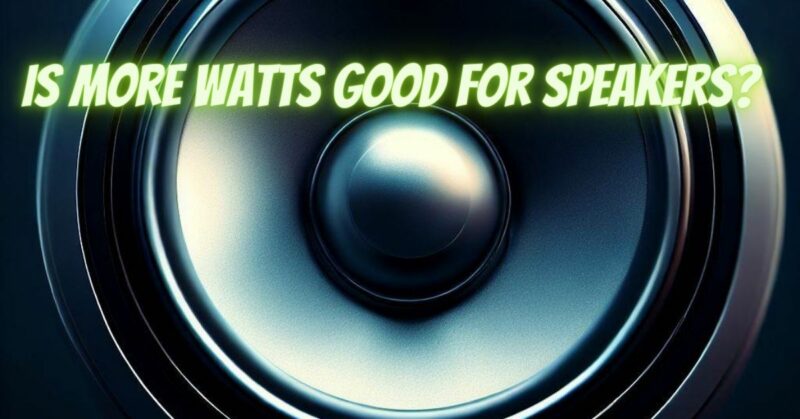When shopping for speakers, one of the most commonly misunderstood aspects is the power rating, measured in watts (W). Some people believe that higher wattage speakers automatically equate to better sound quality. However, the truth is more nuanced. In this article, we will explore the relationship between watts and speaker performance, understanding how speaker power ratings impact sound quality and the considerations for choosing the right speaker based on wattage.
Understanding Speaker Power Ratings:
The power rating of a speaker indicates the maximum amount of electrical power it can handle. It is measured in watts and is commonly divided into two specifications: RMS (Root Mean Square) and peak power. The RMS rating reflects the continuous power a speaker can handle, while the peak power rating represents the maximum short burst of power it can endure.
Speaker Power and Sound Quality:
The wattage of a speaker does not directly determine its sound quality. Sound quality is influenced by a combination of factors, including the speaker’s design, driver quality, enclosure, and overall build. High-wattage speakers can sound excellent if they are well-designed and built with high-quality components.
Speaker Efficiency and Sensitivity:
Two critical factors that influence sound quality are speaker efficiency and sensitivity. Efficiency refers to how effectively the speaker converts electrical power into sound, while sensitivity measures how loud the speaker can be at a specific distance with a set amount of power. High-efficiency and high-sensitivity speakers can produce excellent sound even with low wattage, while low-efficiency speakers may require more power to achieve the same loudness.
Matching Power to Application:
Choosing the right wattage for your speakers depends on the intended application. For example:
- Home Audio: In most home audio setups, speakers with moderate wattage and high sensitivity are sufficient for providing clear and dynamic sound, even at lower volume levels.
- Studio Monitors: Studio monitors typically have lower wattage ratings but are designed for accuracy and detailed sound reproduction, making them ideal for recording and mixing.
- Live Performances: For live performances, higher wattage speakers may be necessary to ensure enough volume to reach the audience without distorting the sound.
Speaker Overloading:
While more watts do not necessarily mean better sound quality, it is essential not to underpower or overpower speakers. Underpowering can cause clipping, distortion, and damage to the speakers. On the other hand, overpowering can lead to blown speakers or excessive strain on the speaker components.
The relationship between watts and sound quality for speakers is not as straightforward as many believe. High wattage alone does not guarantee better sound quality. Instead, factors such as speaker efficiency, sensitivity, design, and overall build play a more significant role in determining sound quality. When choosing speakers, consider the intended application and match the wattage to suit the required volume levels. Additionally, ensure that the amplifier used to power the speakers is appropriately matched to avoid underpowering or overpowering, which could negatively impact sound performance and speaker longevity.


